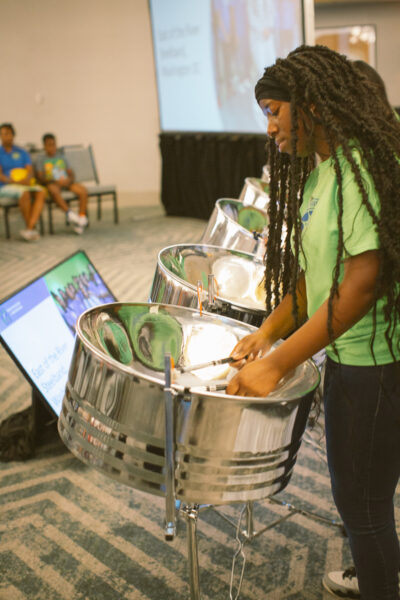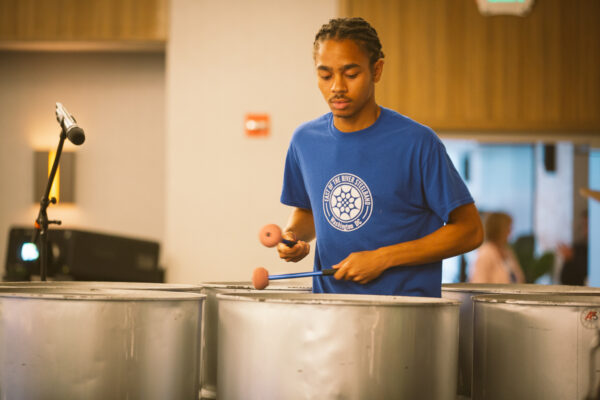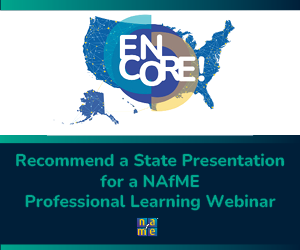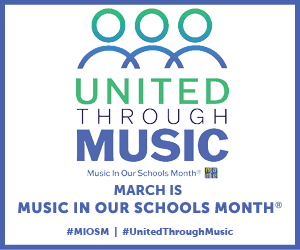NAfME BLOG
Embedding Diversity, Equity, Inclusion, and Access (DEIA) in Repertoire Selection
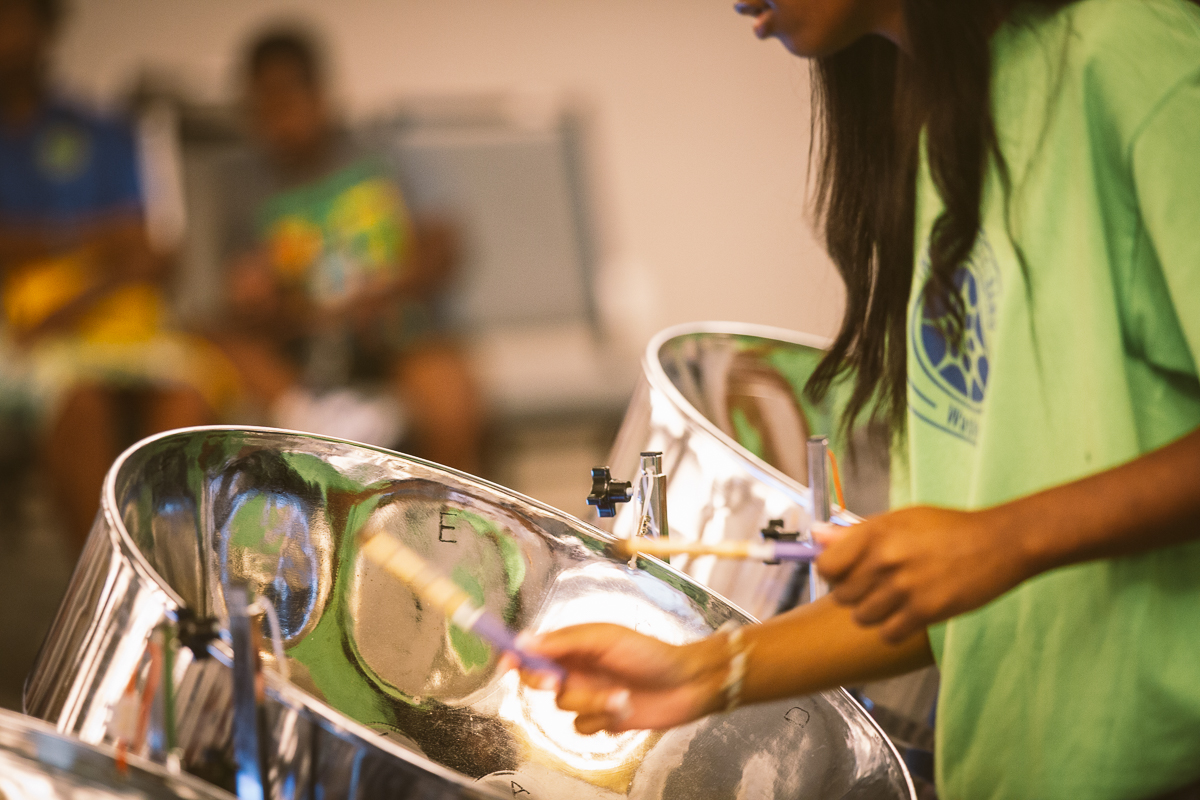
/ News Posts / Embedding Diversity, Equity, Inclusion, and Access (DEIA) in Repertoire Selection
Embedding Diversity, Equity, Inclusion, and Access (DEIA) in Repertoire Selection
Striving for Representation
Part Two of a Four-Part Series
By NAfME Member Roque Diaz, Member of the NAfME Equity Committee
Read part 1 here, part 3 here, and part 4 here.
As music educators, it is our responsibility to ensure that our artistic choices are equitable, inclusive, and representative of the world we live in. Representation matters. When selecting repertoire, it is crucial to consider the backgrounds, experiences, and perspectives of our students/audiences. By including works that reflect a wide range of cultures, identities, and narratives, we create an inclusive, representative, and welcoming environment for all. Few thoughts:
Reexamine Your Selection Process to Embed DEIA Concepts into Repertoire Selection
Take a moment to reflect on your current selection process. Are there any biases or limitations that may hinder equitable representation?
Consider implementing the following strategies:
- Research and Explore: Delve into various artistic traditions, styles, and genres from different cultures and communities. Broaden your knowledge and understanding of different artistic expressions to expand your repertoire options.
- Collaborate with Artists: Engage with artists from different backgrounds and communities during the selection process. Their insights and perspectives can help identify works that authentically represent their cultures and experiences.
- Seek Community Input: Involve your local community in the selection process. Conduct surveys, hold focus groups, or establish advisory committees to gather feedback on repertoire choices. This collaborative approach ensures that the programming resonates with your students.
- Prioritize Historically Underrecognized, Excluded, and Marginalized (HUEM) Artists: Actively seek out works by HUEM artists, including BIPOC (Black, Indigenous, and People of Color), LGBTQ+, differently-abled, and other marginalized communities. Elevate their voices and contribute to a more equitable music landscape.
- Intersectionality Matters: Recognize that individuals have multiple identities that intersect within themselves. Aim to include works that explore the intersections of race, gender, sexuality, ability, and other aspects of identity.
- Balance Traditional and Present-Day Works: Blend traditional masterpieces with present-day creations that reflect the evolving cultural landscape. This balance allows for a dynamic repertoire that speaks to your students/audiences.
- Education and Context: Provide educational materials or pre-performance talks that offer historical and cultural context for the selected works. This enhances audience understanding and appreciation of different artistic traditions.
- Engage in Dialogue: Create spaces for open dialogue and conversation about the repertoire choices. Encourage student/audience feedback, host panel discussions, or facilitate Q&A sessions to foster a deeper connection between artists and the community.
Let’s continue to challenge ourselves to embrace DEIA, amplify HUEM voices, and celebrate the richness of our collective human experience through the power of music.
Respectfully,
![]()
About the author:
 Dr. Roque Diaz is a seasoned executive leader with over two decades of experience in education, arts administration, and diversity, equity, and inclusion (DEI) strategy. A first-generation, neurodivergent Puerto Rican, Dr. Diaz brings a deeply personal and systemic approach to advancing equity across sectors.
Dr. Roque Diaz is a seasoned executive leader with over two decades of experience in education, arts administration, and diversity, equity, and inclusion (DEI) strategy. A first-generation, neurodivergent Puerto Rican, Dr. Diaz brings a deeply personal and systemic approach to advancing equity across sectors.
He previously served as the Senior Director of DEI at MacPhail Center for Music, where he led the organization’s equity strategy, integrated DEI into a $25M capital campaign, and secured the largest grant in the institution’s history. He also launched innovative statewide education programs and built partnerships that expanded access to high-quality music education for historically underserved communities.
Dr. Diaz is the Founder of Progressing Forward, LLC, a consulting firm dedicated to inclusive systems change, strategic planning, and capacity building across nonprofits, schools, and arts organizations. His work helps institutions move from transactional DEI efforts to sustainable, equity-driven impact.
A professionally trained trumpeter, Dr. Diaz has performed internationally in orchestral, chamber, jazz, and Latin music settings. His leadership is shaped by a commitment to ensuring that future generations experience more inclusive and culturally responsive environments.
He currently serves on several nonprofit boards and advisory groups focused on arts, education, and social justice, bringing expertise in governance, strategic planning, fundraising, and inclusive leadership.
Interested in reprinting this article? Please review the reprint guidelines.
The National Association for Music Education (NAfME) provides a number of forums for the sharing of information and opinion, including blogs and postings on our website, articles and columns in our magazines and journals, and postings to our Amplify member portal. Unless specifically noted, the views expressed in these media do not necessarily represent the policy or views of the Association, its officers, or its employees.
Published Date
July 31, 2025
Category
- Class
- Culture
- Diversity, Equity, Inclusion, and Access (DEIA)
- Gender
- Race
- Repertoire
- Representation
- Sexuality
- Social Economic Status
- Social Emotional Learning
- Special Education
Copyright
July 31, 2025. © National Association for Music Education (NAfME.org)
